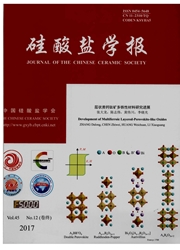

 中文摘要:
中文摘要:
为了测定水泥基材料的早龄期热膨胀系数,并揭示和把握其时变特征、影响因素,通过自行设计的实验方法抑制早龄期胶凝材料的水化和自收缩的发生,获得水泥砂浆的单纯温度变形随测试温度变化的规律,从而求得热膨胀系数,进而以水化龄期为参数获得热膨胀系数的时间依存特征。结果表明:以–2~3 ℃作为测试变温区间能有效抑制水泥的水化进程和自收缩,从而获得砂浆的单纯温度变形;砂浆的早龄期热膨胀系数随龄期增加的变化表现为急剧下降、缓慢回升和持续稳定 3 个基本阶段;随着水泥用量的减少和水灰比的提高,砂浆的热膨胀系数特征值(最大值、最小值和稳定值)增大。
 英文摘要:
英文摘要:
The time dependence on the thermal expansion coefficient (αT) of cement-based materials at early ages was analyzed by a self-designed testing method, and the αT at different ages was determined. In the method, the hydration and autogenous shrinkage of cementitious materials were controlled with a low temperature range. The results show that the hydration process and autogenous shrinkage are controlled effectively in the range of –2 to 3 ℃, assuring the measured deformation as a pure thermal deformation. There are three phases of the mortars′ αT that change with age, i.e., sharply decreasing phase, slowly increasing phase and continuously stable phase. The characteristic values (i.e., the maximum, minimum and stable values) of the mortars′ αT increased with the decrease of cement content and the increase of water-cement ratio.
 同期刊论文项目
同期刊论文项目
 同项目期刊论文
同项目期刊论文
 期刊信息
期刊信息
